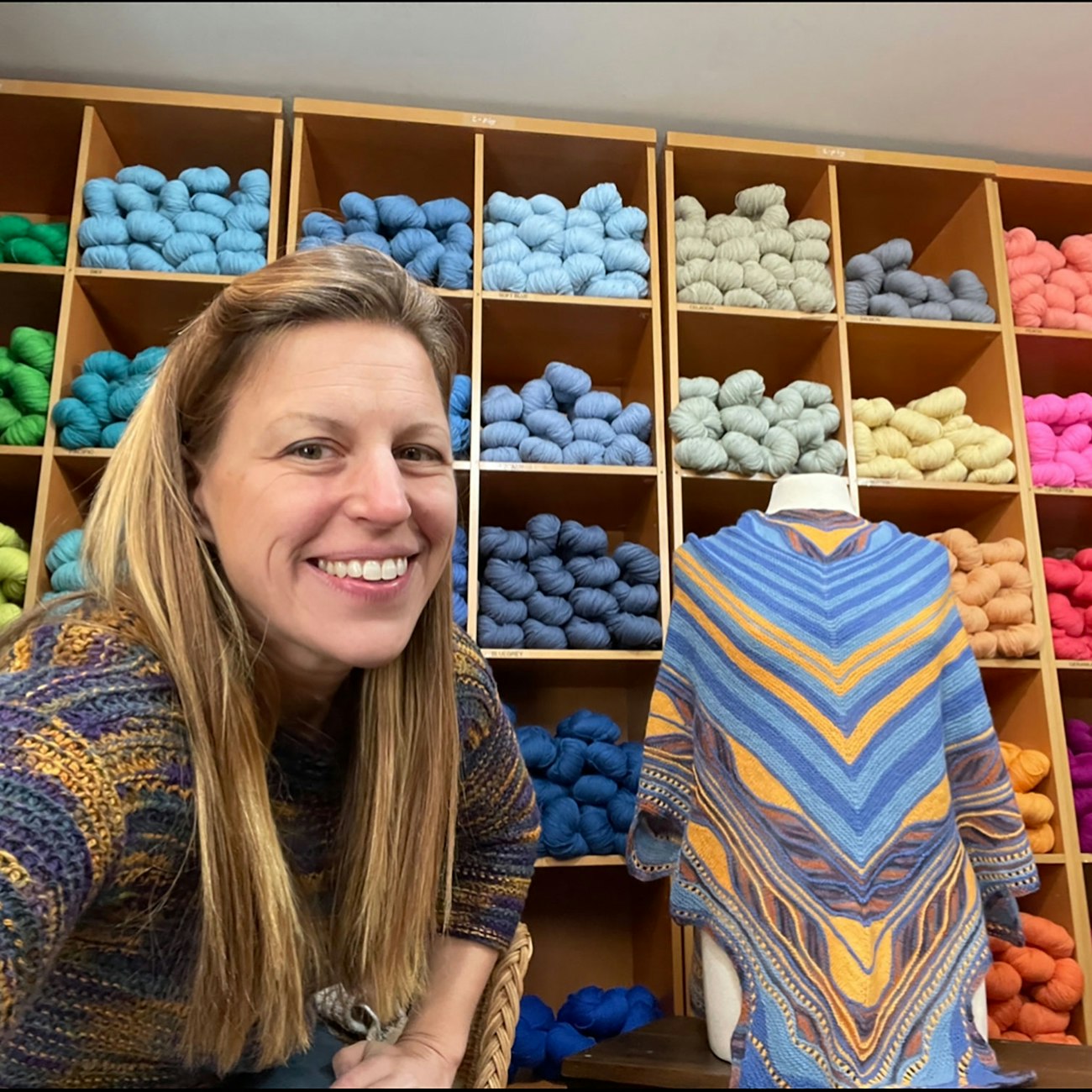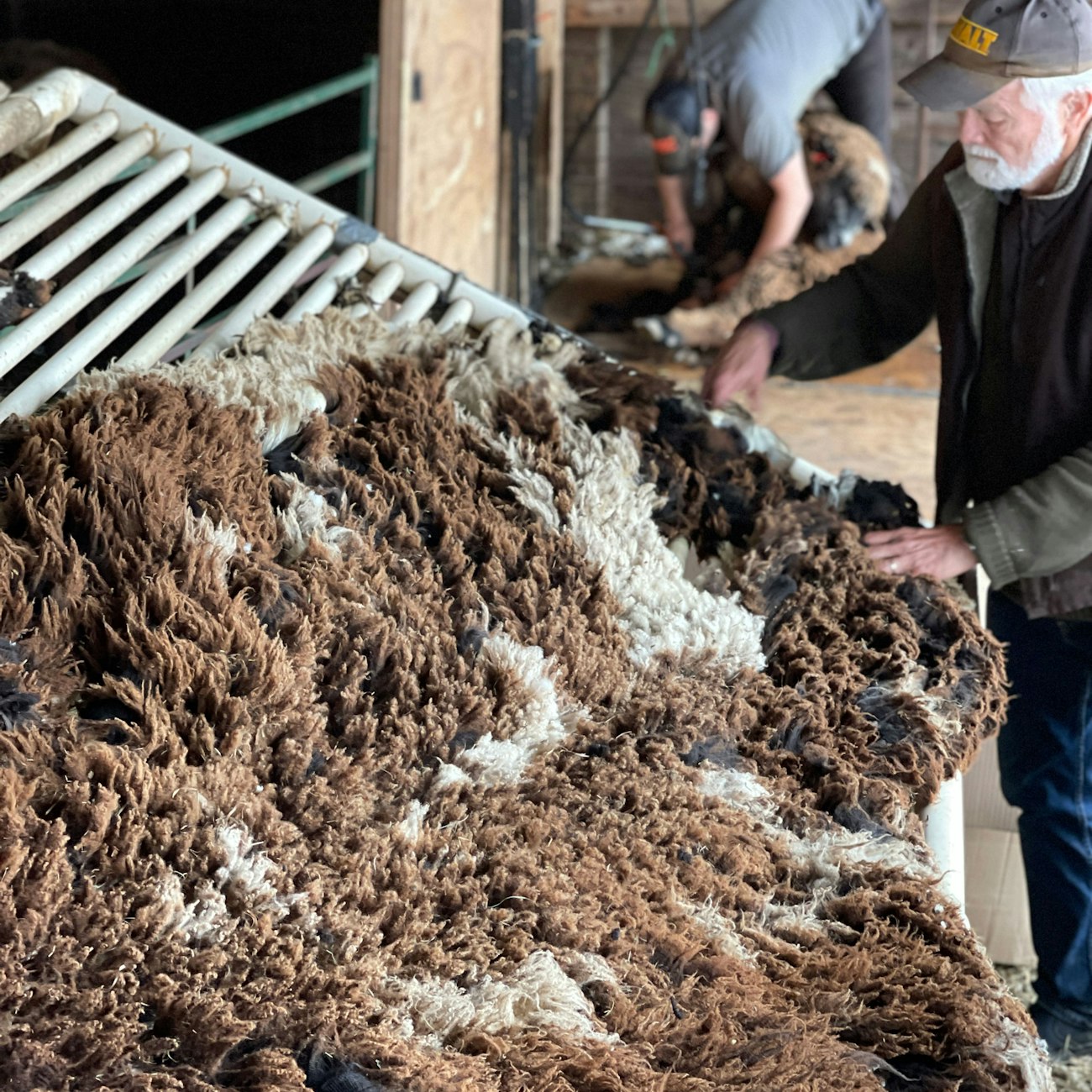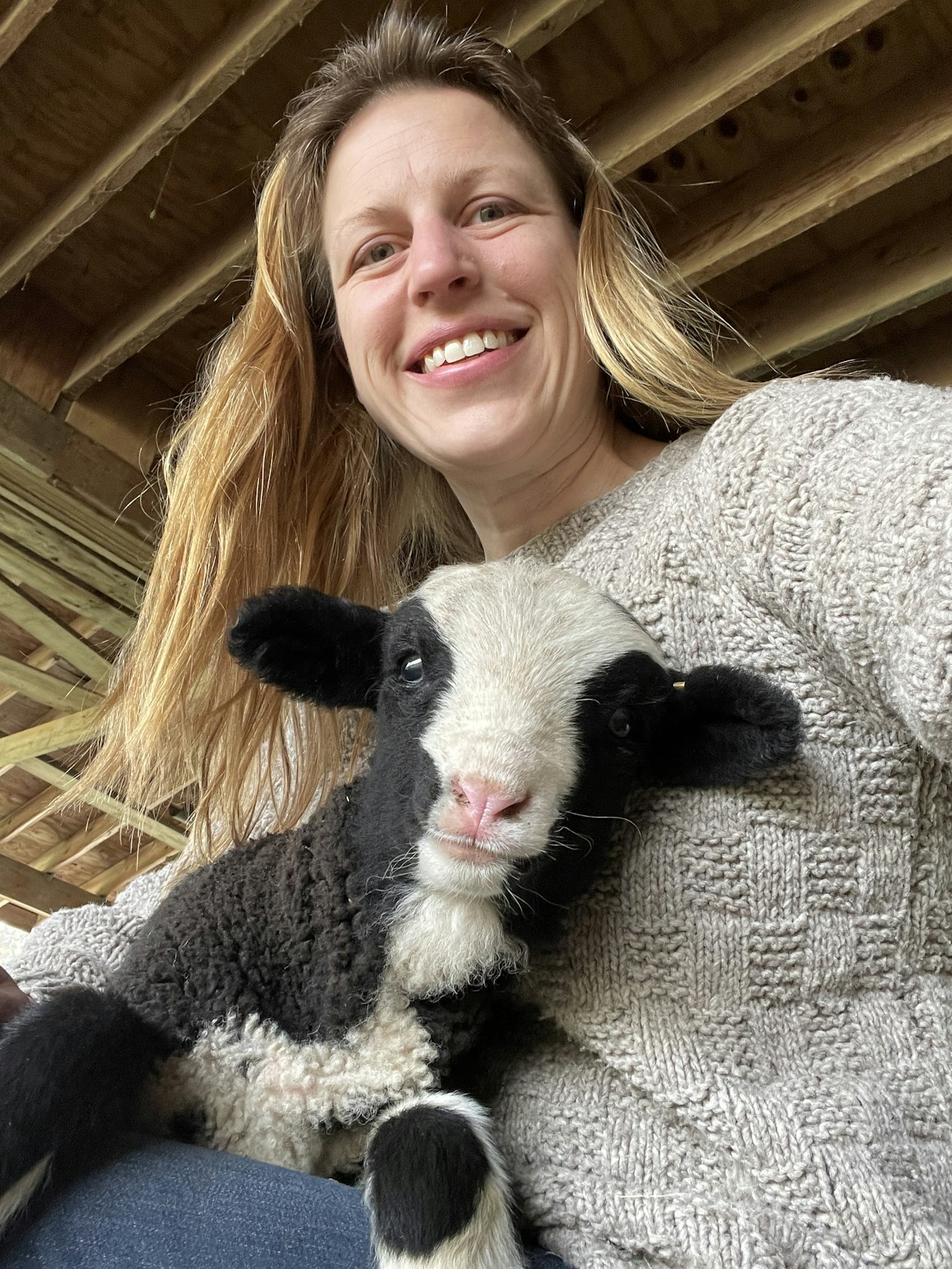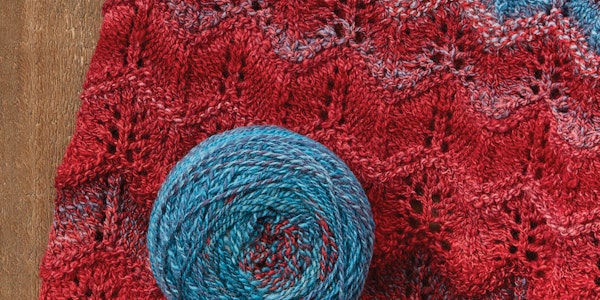Subscriber Exclusive
Ensuring the Future at Morehouse Farm Merinos
How can a wool farm remain a viable business in a changing world? A young farmer and agricultural consultant, drawn to Morehouse Farm since childhood, Erin Pirro helps navigate the farm’s next chapter.
More than 40 years after the founding of Morehouse Farm Merinos, Albrecht Pilcher remains at the helm. With a small team of dedicated helpers, Albrecht breeds superfine Merino sheep and harvests the wool to produce a beautiful range of 100% American Merino wool knitting yarn.
Albrecht’s beloved wife and partner, Margrit Lohrer, was the public face of Morehouse Farm until her death in 2015. Despite the nostalgic, pastoral vision evoked by images of lambs grazing on rolling New England hills, small farms like Morehouse face the economic, cultural, and environmental pressures common to any small business.
Erin Pirro has become the spokesperson for Morehouse Farm since Margrit passed. Erin comes from a farming family. Her parents, Pete and Carol Sepe, produce pasture-raised lamb and have been friends of the Pilchers for many years.
More than 40 years after the founding of Morehouse Farm Merinos, Albrecht Pilcher remains at the helm. With a small team of dedicated helpers, Albrecht breeds superfine Merino sheep and harvests the wool to produce a beautiful range of 100% American Merino wool knitting yarn.
Albrecht’s beloved wife and partner, Margrit Lohrer, was the public face of Morehouse Farm until her death in 2015. Despite the nostalgic, pastoral vision evoked by images of lambs grazing on rolling New England hills, small farms like Morehouse face the economic, cultural, and environmental pressures common to any small business.
Erin Pirro has become the spokesperson for Morehouse Farm since Margrit passed. Erin comes from a farming family. Her parents, Pete and Carol Sepe, produce pasture-raised lamb and have been friends of the Pilchers for many years. [PAYWALL] Erin began working at Morehouse Farm as a small child during school breaks, helping wherever she could—feeding, unloading hay, or checking the lambs. She bonded with Margrit over knitting and a love of the sheep. As the years passed, Erin kept returning to Morehouse Farm, doing retail sales, answering knitting questions, and giving shearing demonstrations at craft fairs. Her parents still tease her about skipping her graduation ceremony to work the Morehouse Farm booth at Maryland Sheep and Wool Festival.
 Erin Pirro with vibrant shelves of Morehouse Merino yarn.
Erin Pirro with vibrant shelves of Morehouse Merino yarn.
In between stints at the farm, she graduated from the University of Connecticut with a BS in Resource Economics and an MS in Agricultural Economics. In 2014, Erin became a Certified Agricultural Consultant. She is a sought-after speaker for agribusiness groups, and works with farmers throughout the northeast, consulting on financial management, expansion planning, and farm succession planning.
At Morehouse Farm, Erin has added marketing the yarn and managing the website to her work with the sheep. “In a small business, you need to know how to do all of the things in case you’re by yourself, and so you can teach them to others,” Erin says. She produces a regular email newsletter, manages collaborations with designers, and has updated Margrit’s extensive catalog of patterns, expanding the size range to meet the demands of modern knitters.
In 2021, Erin introduced the Morehouse Merino Flock Knitalong Group, a friendly, supportive monthly membership program that includes a new project each month, live virtual classes via Zoom, video tutorials related to the projects, virtual members-only knitting gatherings, and dedicated studio hours for one-on-one knitting help.
Like all small businesses, Morehouse has had to adapt to rising costs and the changing environment. They are also exploring sustainable and manageable ways to grow the business to keep pace with demand. Handspinners have expressed a great deal of interest in purchasing raw fleeces or processed spinning fiber, but all the wool produced at Morehouse goes into making their yarn. All Morehouse Farm Merino wool is 100% processed, spun, and dyed in the United States. They work with a variety of mills, depending on the quantity and type of yarn they need to spin.
 Albrecht skirting a freshly shorn fleece.
Albrecht skirting a freshly shorn fleece.
The size of the flock is limited by what the resources (land and labor) can support. The farm’s original 33 acres have been expanded by arranging grazing rights with local utilities. The sheep take care of keeping the transmission right-of-way clear.
Annual wool production varies greatly depending on the weather. Cool, wet years produce more wool. Given that 2023 has been one of the wettest in a long time, Erin is looking forward to shearing day in the spring to see how the weather impacted the fleeces. Erin is also excited about producing a small-batch yarn celebrating the fleece of Swirl, an unusual ewe who grows a fleece patterned in a patchwork of chocolate and white. They have two fleeces from Swirl so far and hope to release this very special yarn on the farm’s website in 2024.

Erin with Swirl when she was just a lamb. There are plans for a small-batch yarn celebrating this chocolate-and-white fleece in 2024.
Links
Sepe Farm
Erin Pirro
Morehouse Merino Flock Knitalong Group
Sandi Rosner (she/her) learned to knit in the late 1970s from the instructions in the back of a magazine. She now works as a freelance designer, technical editor, writer and teacher. When Sandi isn’t knitting, she usually has her nose in a book. Find more of Sandi’s work at her Substack, A Good Yarn.



 Erin Pirro with vibrant shelves of Morehouse Merino yarn.
Erin Pirro with vibrant shelves of Morehouse Merino yarn.  Albrecht skirting a freshly shorn fleece.
Albrecht skirting a freshly shorn fleece.